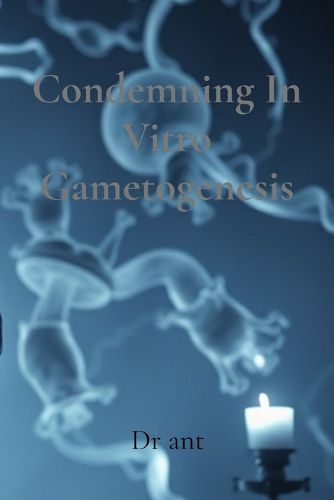Readings Newsletter
Become a Readings Member to make your shopping experience even easier.
Sign in or sign up for free!
You’re not far away from qualifying for FREE standard shipping within Australia
You’ve qualified for FREE standard shipping within Australia
The cart is loading…






The maturation of in vitro-generated gametes to full functionality remains a significant obstacle. The complex processes of gametogenesis involve intricate cellular signaling and developmental cues that are difficult to replicate in the laboratory setting. Ensuring the production of fully functional, fertilization-competent gametes is paramount, as compromised gametes could lead to fertilization failure or developmental abnormalities. The challenges related to maturation highlight the need for continuous scientific advancements in culture systems and protocols to refine and optimize IVG techniques. Further improvements in the understanding of the intricate developmental processes are vital to advancing this technology safely.
Another significant concern is the potential for genetic abnormalities in IVG-derived gametes. While gene editing technologies can address some genetic defects, the possibility of unintended off-target effects remains a concern. Off-target edits refer to unintended modifications to the genome that could have deleterious consequences for the developing embryo. The inherent complexity of the genome and the limitations of current gene editing tools necessitate meticulous quality control measures to ensure the safety and genetic integrity of IVG-derived gametes. This requires not only rigorous scientific evaluation but also robust regulatory oversight to mitigate potential risks.
Beyond the scientific and medical challenges, IVG also presents profound ethical and theological dilemmas. The creation of human gametes outside the body raises fundamental questions about the nature of human life and reproduction. Some religious traditions hold strong beliefs about the sanctity of human life, viewing the creation of life as a sacred act reserved for procreation within the context of marriage. IVG, by potentially bypassing natural procreation and involving the manipulation of human germline, could conflict with these deeply held beliefs. These theological concerns necessitate open and respectful dialogue between scientific researchers, ethicists, and religious leaders to find common ground and ensure responsible implementation.
The potential for misuse of IVG is another significant ethical concern. The technology could be used for non-therapeutic purposes, such as sex selection or enhancement of genetic traits beyond the realm of disease prevention. These applications raise concerns about social equity and fairness, as access to such technologies may be unevenly distributed. The potential for exacerbation of existing social inequalities needs to be carefully considered, requiring safeguards and regulations to prevent the misuse of IVG. A thorough societal discourse to address the ethical and social impacts of this technology is imperative for responsible development and implementation.
$9.00 standard shipping within Australia
FREE standard shipping within Australia for orders over $100.00
Express & International shipping calculated at checkout
The maturation of in vitro-generated gametes to full functionality remains a significant obstacle. The complex processes of gametogenesis involve intricate cellular signaling and developmental cues that are difficult to replicate in the laboratory setting. Ensuring the production of fully functional, fertilization-competent gametes is paramount, as compromised gametes could lead to fertilization failure or developmental abnormalities. The challenges related to maturation highlight the need for continuous scientific advancements in culture systems and protocols to refine and optimize IVG techniques. Further improvements in the understanding of the intricate developmental processes are vital to advancing this technology safely.
Another significant concern is the potential for genetic abnormalities in IVG-derived gametes. While gene editing technologies can address some genetic defects, the possibility of unintended off-target effects remains a concern. Off-target edits refer to unintended modifications to the genome that could have deleterious consequences for the developing embryo. The inherent complexity of the genome and the limitations of current gene editing tools necessitate meticulous quality control measures to ensure the safety and genetic integrity of IVG-derived gametes. This requires not only rigorous scientific evaluation but also robust regulatory oversight to mitigate potential risks.
Beyond the scientific and medical challenges, IVG also presents profound ethical and theological dilemmas. The creation of human gametes outside the body raises fundamental questions about the nature of human life and reproduction. Some religious traditions hold strong beliefs about the sanctity of human life, viewing the creation of life as a sacred act reserved for procreation within the context of marriage. IVG, by potentially bypassing natural procreation and involving the manipulation of human germline, could conflict with these deeply held beliefs. These theological concerns necessitate open and respectful dialogue between scientific researchers, ethicists, and religious leaders to find common ground and ensure responsible implementation.
The potential for misuse of IVG is another significant ethical concern. The technology could be used for non-therapeutic purposes, such as sex selection or enhancement of genetic traits beyond the realm of disease prevention. These applications raise concerns about social equity and fairness, as access to such technologies may be unevenly distributed. The potential for exacerbation of existing social inequalities needs to be carefully considered, requiring safeguards and regulations to prevent the misuse of IVG. A thorough societal discourse to address the ethical and social impacts of this technology is imperative for responsible development and implementation.